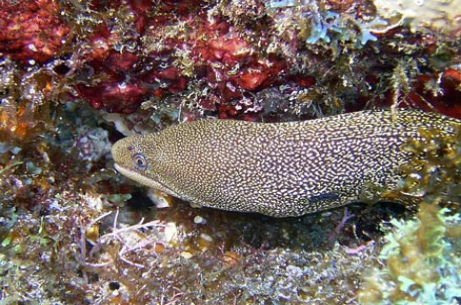
Five Gates Cambridge scholars presented their research to Trustees last week.
Five Gates Cambridge scholars presented their research to Bill Gates senior, other trustees, trust officers and scholars on Thursday.
The Scholars’ Symposium encompassed research on subjects ranging from the links between reproductive cycles and Alzheimer’s in women, solar cell efficiency and the cooperative abilities of grouper fish to anti-poverty programmes taken up by women and accountability journalism in the digital age.
Molly Fox (2008), who is doing a PhD in Biological Anthropology, presented the preliminary findings of her research which tests the hypothesis that cumulative lifetime exposure to ovarian hormones influences risk of Alzheimer’s-type dementia in women. She says: “A profound shift in women’s reproductive patterns has occurred in modern times such as earlier puberty age, fewer pregnancies, and shorter breastfeeding phase. These changes influence the level, duration, and frequency of exposure to ovarian hormones. The implications of this new reproductive norm may be particularly acute for elderly women, as the cumulative and long-term effects of hormone exposure could potentially influence their behaviour, physiology, health, and longevity.”
She adds that ovarian hormones are known to affect the brain in ways specific to Alzheimer’s pathology. She states: “These new reproductive norms may put women at increased risk of Alzheimer’s – thus women today may have higher rates of Alzheimer’s than would have been the case for the vast majority of human history.”
Andrey Poletayev (2011), who is doing an MPhil in Physics, talked about his work on developing a physical model for predicting practically achievable solar cell efficiencies and how he has used it as a tool to rationally design optimised photovoltaics.
Alexander Vail (2010), is doing a PhD in Zoology on the communicative and cooperative hunting relationship between coral reef moray eels and groupers. He says: “Their relationship is based on complementary hunting techniques, with the grouper having speed in the open while the moray can wriggle into crevices, leading to increased success when they hunt together. The grouper performs a characteristic shimmy signal in front of a sheltering moray to enlist it in a joint hunt. Chimpanzees are the only other species known to use communication to initiate a collaborative hunt.”
His research has shown that a second signal used by the grouper to indicate hidden prey to morays and other partners is the only example of an intentionally referential gesture (i.e. pointing) outside of the exceptionally large-brained corvids and apes. He has also been able to show that groupers can quickly learn when and with which individual partner to best collaborate. He says: “This changes our view of the evolutionary origins of these skills that are currently known only for chimpanzees and humans. The grouper-moray system has great potential to change public attitudes towards fish.”
Tara Cookson (2011), who is doing a PhD in Geography, focused on the use in Latin America of the Conditional Cash Transfer (CCT), which grants small monthly cash payments to poor mothers provided they meet conditions around child school attendance, health checks, nutrition and hygiene classes and ‘voluntary’ community clean-ups. Men do not use the CCT scheme. Tara’s research work investigates the assumptions about poor women and men that underpin CCT programs beginning at the level of policy, and traces them down to the household level, asking questions such as what does it mean to exclude men from a major
development programme based on responsibility and their children’s care.
Finally, Andrew Gruen (2010), who is doing a PhD Sociology, destroyed some myths about accountability journalism in the digital age, such as the idea that people only click on “tantalising” stories rather than things they need to know, the ideas the the media only make money by selling subscriptions and advertising and the perception that citizen journalism is all about low-quality YouTube videos.
Picture credit: Mayan Aqua Dive and Creative Commons












